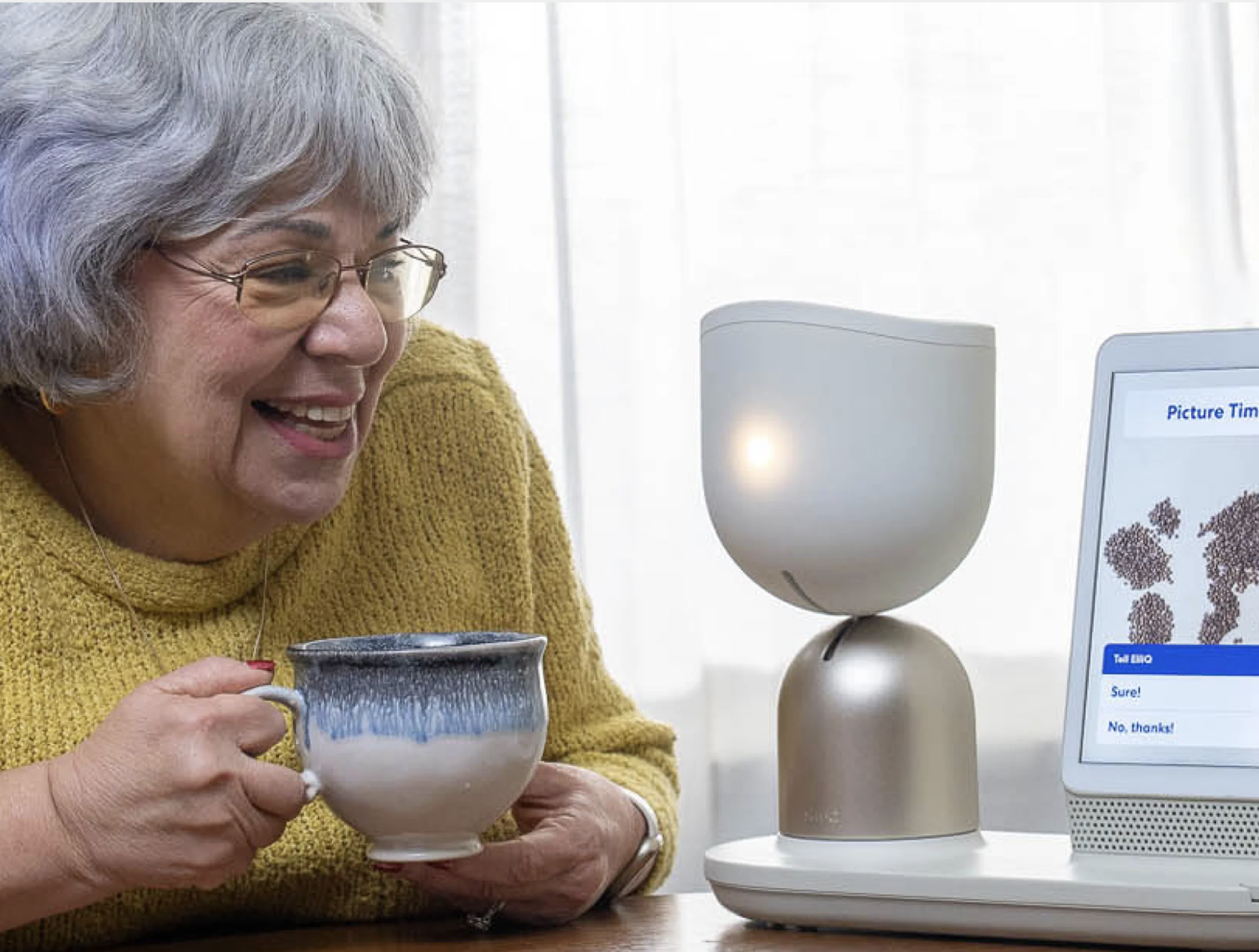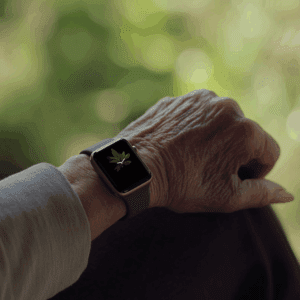Artificial Intelligence is quietly revolutionizing dementia care. From early detection to personalized daily support, a wave of AI-powered dementia apps is shaping a smarter, more responsive future for people living with cognitive impairment - and for the families and professionals supporting them.
So what can we expect next? Here’s a look at the companies leading the way and the technologies reshaping dementia care.
Early Detection and Cognitive Monitoring
AI is making it possible to detect subtle cognitive changes years before traditional symptoms appear. Apps and platforms now use natural language processing, speech analysis, and game-based assessments to measure memory, attention, and executive function over time.
- Altoida uses smartphone sensors and machine learning to detect Alzheimer’s up to 10 years before clinical symptoms appear.
- Cognetivity Neurosciences offers an AI-powered visual test for early dementia screening, already in use in some clinical settings in the UK.
- MindMate, an app originally designed as a cognitive training platform, is building on its dataset to personalize daily routines based on cognitive trends.
This approach allows for earlier interventions and more accurate tracking of decline or stability.
Personalized, Adaptive Support
AI is also helping create more individualized care experiences. Instead of static reminders, next-gen apps adapt to user behavior and preferences - shifting the format, timing, or tone of prompts based on what works best.
- MapHabit uses a visual mapping system combined with machine learning to deliver customized task guidance for people with dementia.
- CarePredict, while originally focused on senior living facilities, uses AI to learn daily behavior patterns and detect anomalies like skipped meals or changes in gait.
This tech empowers people to maintain independence longer while helping caregivers intervene earlier when something seems “off.”
Location Awareness and Behavioral Alerts
One of the most impactful applications of AI is in behavioral pattern recognition - understanding when something changes, and what it might mean.
- CarePredict’s Tempo wearable continuously monitors motion and location in the home, flagging deviations from routine.
- AngelSense, while primarily a GPS tracker, is increasingly incorporating AI to provide smart alerts about unusual location patterns or changes in activity.
- Kinto (Japan) is developing an AI-assisted app that uses video and audio cues from smart home devices to detect signs of confusion or agitation in users with dementia.
These tools go beyond GPS - they aim to act as early warning systems.
Conversational AI and Voice Assistants
Conversational AI is helping bridge the interface gap for people who struggle with touchscreens or traditional apps.
- Memory Lane by Accenture uses conversational AI to guide reminiscence therapy through voice, with prompts based on the user’s personal history.
- ElliQ (by Intuition Robotics) is a robotic companion that provides reminders, conversation, and companionship - all powered by AI.
- MyndYou uses voice analytics in phone calls to track cognitive function and detect subtle behavioral changes over time.
These tools create more natural, accessible ways to receive support - especially important for users with declining literacy or motor skills.
One to Watch: Elli Cares
While many players are focused on clinical data and eldercare facilities, Elli Cares is bringing AI-enhanced support directly into the hands of families.
Built to support seniors with early-stage dementia and their care partners, Elli Cares uses AI to:
- Monitor behavioral shifts via device usage (through its Safe Track feature)
- Offer personalized reminders via video messages, recorded by loved ones
- Provide conversational AI support via the “Ask Elli Anything” tool
Unlike more clinical apps, Elli Cares is designed for warmth, ease, and connection - blending family support with subtle monitoring in a way that feels respectful, not invasive.
What’s Next for AI Dementia Support?
Here are a few things we can expect from AI dementia apps in the coming years:
- Seamless integration with smart home devices (e.g., lights, appliances, door sensors)
- Emotion detection based on tone of voice and facial cues
- Multi-modal health tracking combining wearables, phone data, and manual logs
- Ethical AI frameworks to preserve dignity and autonomy in tech-driven care
- Deeper personalization - apps that "know" routines, adjust over time, and communicate in familiar ways
The future of dementia care won’t be driven by technology alone - but the right technology, designed ethically and empathetically, will offer new ways to care, connect, and understand.
AI-powered dementia apps are here - and what’s coming next is more personal, more predictive, and more powerful than ever.








